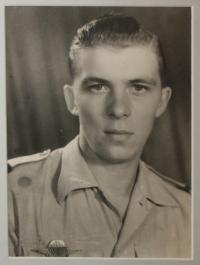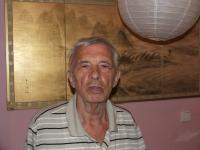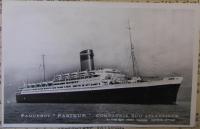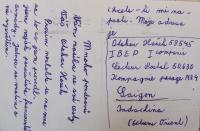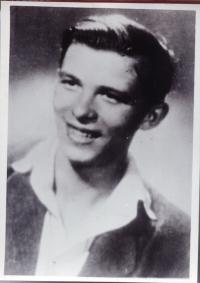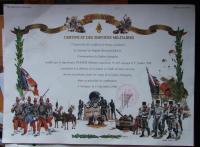Why are you scared, we will go to Czechoslovakia, what can happen to us? It will be better than in Vietnam You can at least have a bath in prison every week and you get something to eat

Download image
Otakar Hašek was born in Prague. He was expelled from technical college in 1947. In the same year he attempted to flee to Austria for the first time. However, he succeeded only for the second time in June 1948. He joined the French Foreign Legion in Vienna. He went through training in Algeria and as a paratrooper he was sent to Indochina. He was wounded in Vietnam once, he served in an office then. In October 1950 he was sent to fight again. He was captured by Vietnamese soldiers at Tat Khe. In April 1952 he was repatriated with some other Czechoslovak soldiers and East German legionnaires through China and the Soviet Union to Czechoslovakia. He was investigated and imprisoned in Prague and Mladá Boleslav. Consequently he was sentenced to 20 months. After his release he worked in chemical industry and he managed to graduate from university. After August 21, 1968 he emigrated to Canada. However, he lived in the Unites States most of the time. In 2003 he returned to the Czech Republic for good, he lives in Luhačovice these days.
